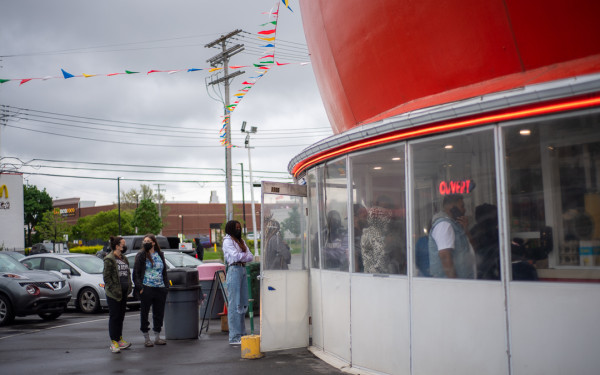Editorial: More concrete measures needed to fight anti-Asian hate
Since the beginning of the pandemic, Asian communities have been subjected to harassment, discrimination, and violence by those who wrongly blame them.
On March 16, a white gunman killed six Asian women in Atlanta, Georgia. The killings sent shockwaves across the continent and influenced thousands to march in the streets of Montreal this Sunday against anti-Asian violence.
The focus was not only on the massacre but the climate of anti-Asian sentiment that fosters such heinous crimes.
The march follows a disturbing wave of anti-Asian racism throughout the country that has threatened the safety of Asian people. The Chinese Canadian National Council released a report in September revealing that there were more Anti-Asian hate crimes per capita reported in Canada than in the United States.
This month in Montreal, a Korean man was assaulted with pepper spray at Coloniale Ave. and Marie-Anne St. in the Plateau. A year earlier, another Korean man was stabbed outside a grocery store on Decarie Blvd. Racially motivated attacks have been happening against Asian Montrealers with increased frequency since then.
This violence didn’t originate with the pandemic, however. Canada has a long and ongoing history of anti-Asian discrimination and exploitation of Asian communities. Examples include the head tax in 1885, Chinese patients not being allowed in “white hospitals” in Montreal during the Spanish Flu, and violence similar to what’s taking place today toward Asian communities during the SARS pandemic.
Groups such as the Center for Research-Action on Race Relations have been calling on governments since last year to help support initiatives against anti-Asian racism and xenophobia. An issue CRARR raised was how most of the resources from Canada's Anti-Racism Strategy 2019-2022, a $45-million initiative, is largely going to groups outside Quebec, leaving Asian and other Communities in Montreal neglected.
This June, city councillor Marvin Rotrand proposed a successful motion condemning “acts of hate, discrimination, and violence directed against Montrealers of various Asian origins.” Condemnation is important, of course, but it’s only a first step.
The Quebec government and all our governments need to do all they can to acknowledge, condemn, and confront the racism rampant in our society.
Quebec has recently appointed its first minister for fighting racism—Benoit Charette, a white man who told the Canadian Press “We must not see racism where there is none.” The minister, together with the rest of the government, still refuses to admit that systemic racism exists in the province.
A report from the CCNC, released this morning, shows there have been more than 1,000 self-reported incidents of anti-Asian racism in Canada since the start of the pandemic. With this report, the CNCC is calling for immediate action and more resources for anti-racism education and training, social supports for victims, and accessible policies to prevent the spread of both misinformation and language that could incite racist hate on social media.
The council also calls for more reliable support for small business, stating that Asian business owners, especially in the food sector, have been victims of both the economic effects of COVID-19 and the racial stigmatization that have come with it. This has been the case, for example, in Montreal’s Chinatown.
There also needs to be changes at the federal level. Though a motion condemning and committing to do more to to stop anti-Asian racism was recently introduced and passed by Parliament, it is non-binding, meaning it does not commit the government to any specific action. There needs to be more concrete measures and more fervent action demonstrated by the government to address the issue.
The media also plays a vital role in the fight against this discrimination. Media institutions need to name racism for what it is, so people are more attuned to the society they live in. White allies also have a responsibility to step up in these moments and intervene or call out anti-Asian discrimination whenever they see it taking place.

.png)
_600_832_s.png)



_600_375_s_c1.png)